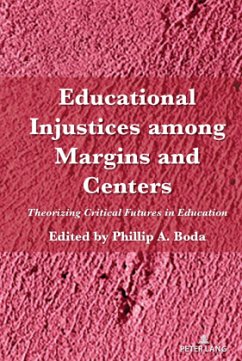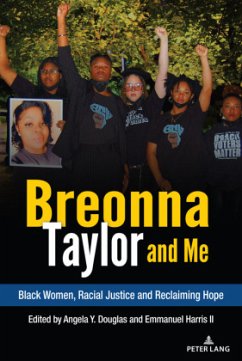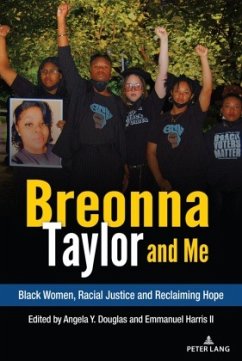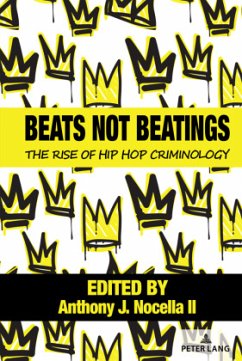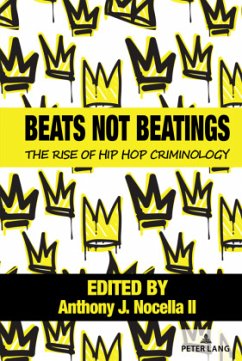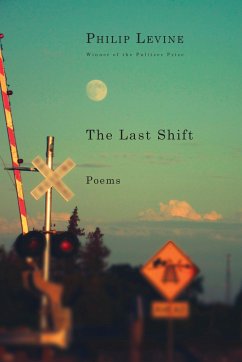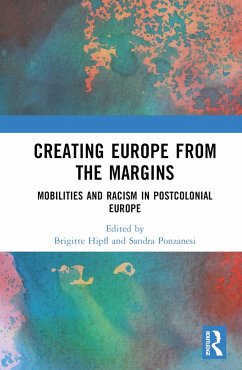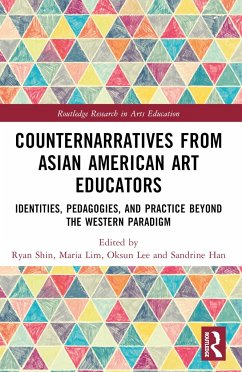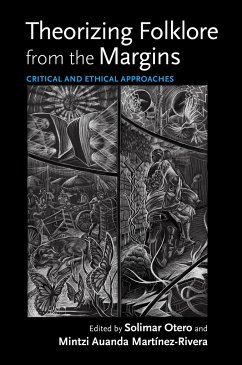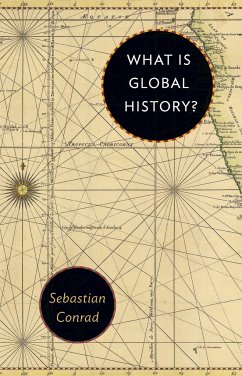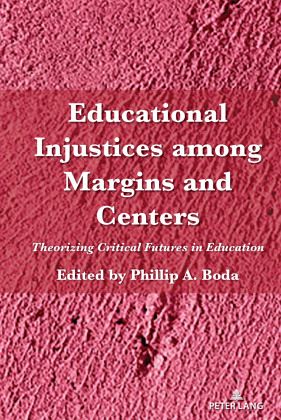
Educational Injustices among Margins and Centers
Theorizing Critical Futures in Education
Herausgegeben: Steinberg, Shirley R.; Boda, Phillip
Versandkostenfrei!
Versandfertig in 6-10 Tagen
102,95 €
inkl. MwSt.
Weitere Ausgaben:

PAYBACK Punkte
0 °P sammeln!
Since the first English translation of Paulo Freire's Pedagogy of the Oppressed (1970), critical breakthroughs in education have been diffcult to establish and flourish. In turn, dismantling and rebuilding these systems are not a destination, but a dialectical practice negotiated across time and space to continually challenge the hegemony that aims to increase the vulnerability of those already at risk of violence. But just as these ideologies have invaded so many of our social environments, we must disrupt these systems with our own counter-narration to expose the contradictions that sustain ...
Since the first English translation of Paulo Freire's Pedagogy of the Oppressed (1970), critical breakthroughs in education have been diffcult to establish and flourish. In turn, dismantling and rebuilding these systems are not a destination, but a dialectical practice negotiated across time and space to continually challenge the hegemony that aims to increase the vulnerability of those already at risk of violence. But just as these ideologies have invaded so many of our social environments, we must disrupt these systems with our own counter-narration to expose the contradictions that sustain epistemological obedience and education that limits the possibilities for further change in society. In this book, I am honored to bring together unresolved cases as scholars strive to overthrow oppressive hegemonies that place the individual above the communal good if favor of profit-based machinations. Ultimately, this edited book seeks to challenge the dichotomy between what we mean by individual and community in educational practice and research to illustrate how scholars can create more nuanced and relational ways of understanding justice, paving the way for hitherto unknown critical research in education, grounded in new visions of the future for schools exploring the radical possibility of 'what if.'
"In this beautifully curated edited collection, scholars-activists-thinkers-dreamers share research, stories, and personal journeys of education and beyond. Engaging thoughtfully and generatively with complex topics such as migration, disability, racism, feminism, Blackness, settler-colonialism, relationality, memory, and imperialism, authors in this volume offer diverse lines of flight from oppressive and marginalizing structures, toward creative and liberatory possibilities for healing, teaching, learning, and being/becoming. Their powerful contributions together form a critical imaginary that will undoubtedly inspire educators, researchers, and activists alike."
-Sara Tolbert, Te Whare Wananga University of Canterbury, Aotearoa New Zealand
"The creative energy and dazzling insights generated throughout the chapters of this book mark a new critical/liminal portal for educators that provide multiple entryways through which to navigate the politics of identity (as opposed to identity politics) and to grasp the biopolitical embeddedness of the carceral settler state in our everyday psyche while at the same time providing innovative ways to effect its diminution-and eventual disappearance-without resorting to compulsory use of the master's tools. This is an important and formidable work of scholarship, poetry and self-reflection animated by the power of the collective. A must-read book."
-Peter McLaren, Distinguished Professor in Critical Studies, Co-Director and International Ambassador for Global Ethics and Social Justice, The Paulo Freire Democratic Project, Chapman University
"In this beautifully curated edited collection, scholars-activists-thinkers-dreamers share research, stories, and personal journeys of education and beyond. Engaging thoughtfully and generatively with complex topics such as migration, disability, racism, feminism, Blackness, settler-colonialism, relationality, memory, and imperialism, authors in this volume offer diverse lines of flight from oppressive and marginalizing structures, toward creative and liberatory possibilities for healing, teaching, learning, and being/becoming. Their powerful contributions together form a critical imaginary that will undoubtedly inspire educators, researchers, and activists alike."
-Sara Tolbert, Te Whare Wananga University of Canterbury, Aotearoa New Zealand
"The creative energy and dazzling insights generated throughout the chapters of this book mark a new critical/liminal portal for educators that provide multiple entryways through which to navigate the politics of identity (as opposed to identity politics) and to grasp the biopolitical embeddedness of the carceral settler state in our everyday psyche while at the same time providing innovative ways to effect its diminution-and eventual disappearance-without resorting to compulsory use of the master's tools. This is an important and formidable work of scholarship, poetry and self-reflection animated by the power of the collective. A must-read book."
-Peter McLaren, Distinguished Professor in Critical Studies, Co-Director and International Ambassador for Global Ethics and Social Justice, The Paulo Freire Democratic Project, Chapman University




